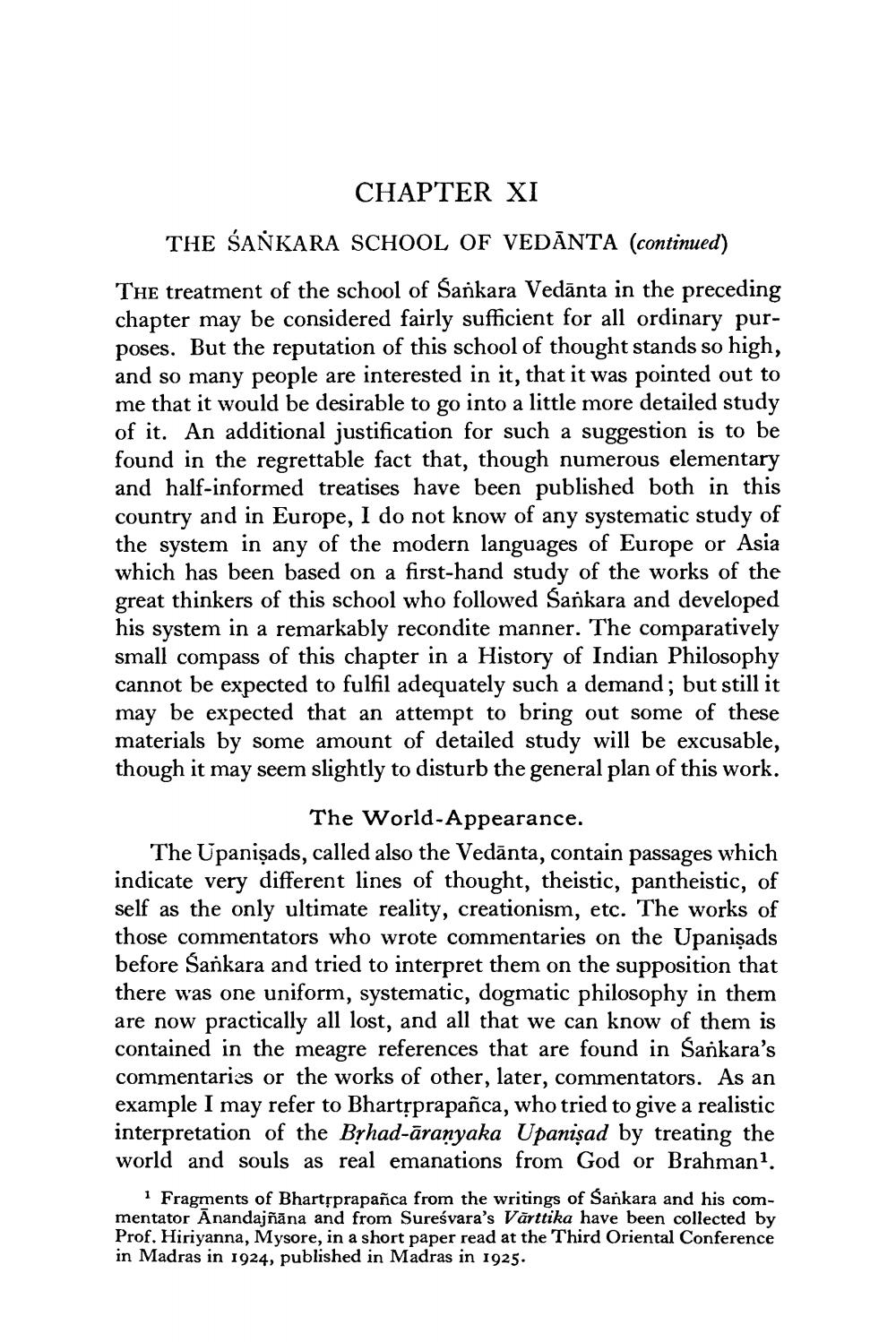________________
CHAPTER XI
THE SANKARA SCHOOL OF VEDĀNTA (continued)
The treatment of the school of Sankara Vedānta in the preceding chapter may be considered fairly sufficient for all ordinary purposes. But the reputation of this school of thought stands so high, and so many people are interested in it, that it was pointed out to me that it would be desirable to go into a little more detailed study of it. An additional justification for such a suggestion is to be found in the regrettable fact that, though numerous elementary and half-informed treatises have been published both in this country and in Europe, I do not know of any systematic study of the system in any of the modern languages of Europe or Asia which has been based on a first-hand study of the works of the great thinkers of this school who followed Sankara and developed his system in a remarkably recondite manner. The comparatively small compass of this chapter in a History of Indian Philosophy cannot be expected to fulfil adequately such a demand; but still it may be expected that an attempt to bring out some of these materials by some amount of detailed study will be excusable, though it may seem slightly to disturb the general plan of this work.
The World-Appearance. The Upanişads, called also the Vedānta, contain passages which indicate very different lines of thought, theistic, pantheistic, of self as the only ultimate reality, creationism, etc. The works of those commentators who wrote commentaries on the Upanisads before Sankara and tried to interpret them on the supposition that there was one uniform, systematic, dogmatic philosophy in them are now practically all lost, and all that we can know of them is contained in the meagre references that are found in Sankara's commentaries or the works of other, later, commentators. As an example I may refer to Bhartsprapanca, who tried to give a realistic interpretation of the Brhad-āranyaka Upanişad by treating the world and souls as real emanations from God or Brahman?.
Fragments of Bhartsprapanca from the writings of Sankara and his commentator Anandajñāna and from Sureśvara's Vārttika have been collected by Prof. Hiriyanna, Mysore, in a short paper read at the Third Oriental Conference in Madras in 1924, published in Madras in 1925.




